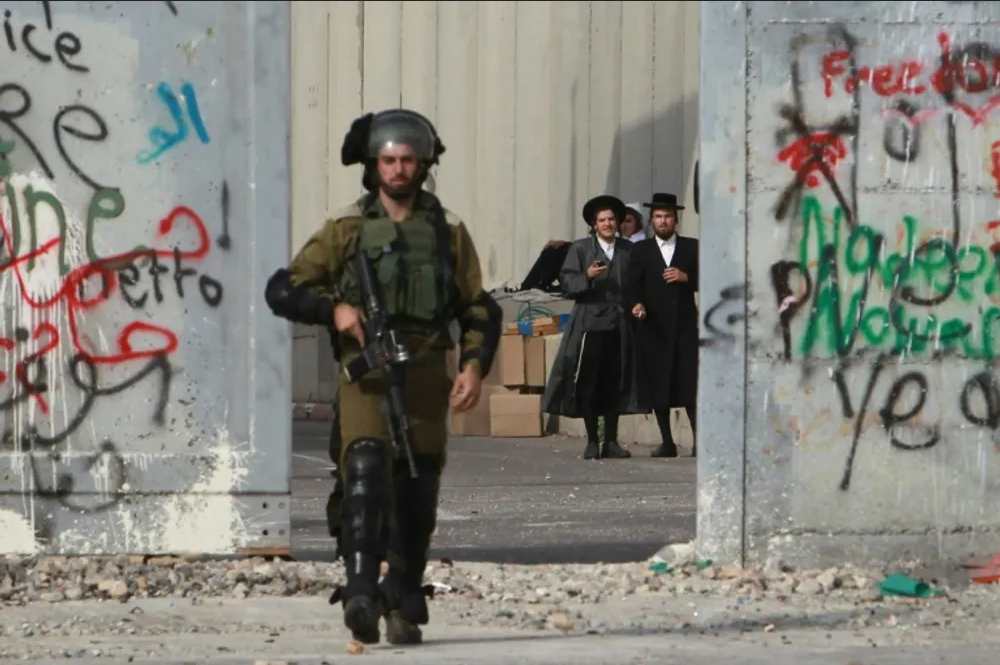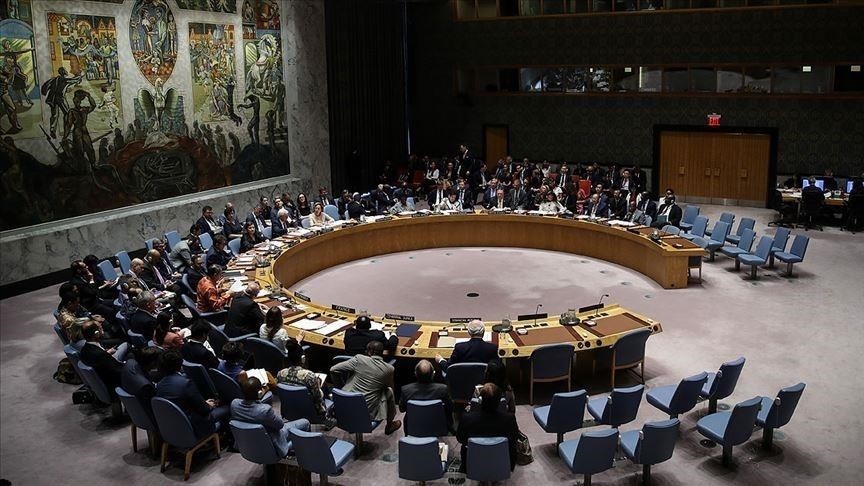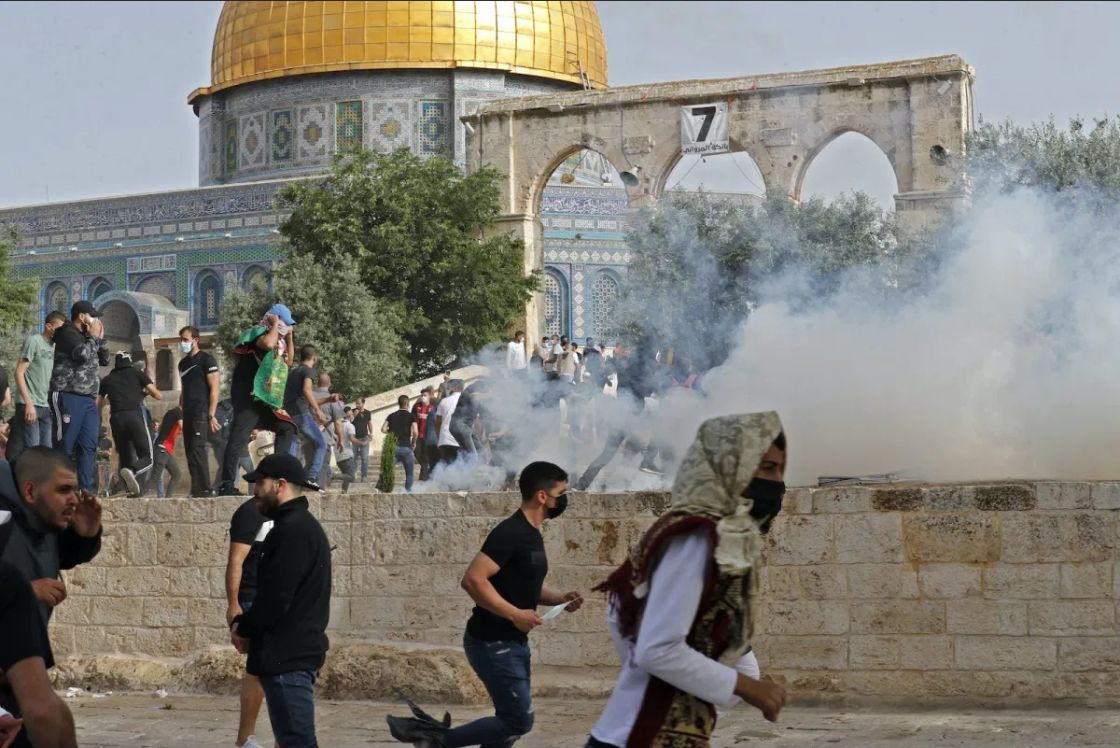- Articles
- Posted
The Palestinian Cause and Apartheid… How to Benefit from the Classification Without Falling into a Trap
As events unfold in Palestine and the Occupied Palestinian Territories, with a vicious violent escalation by the Zionist enemy especially in Gaza, but also inside the Green Line targeting the Palestinians living in the 1948 Occupied Territories, it is becoming much harder for the world to hide behind its finger.
We are increasingly hearing and reading more statements from mostly public figures condemning the “Israeli” aggression and practices. Perhaps one of the distinctions of this uprising, media-wise, is witnessing a noticeable increase in using certain terms, among them the word “apartheid” in describing with “Israel”.
“Israel” is an Apartheid State
Describing “Israel’s” policies using words like “apartheid” is nothing new. However, what is new is the significant increase in number of personalities and entities using “apartheid” in associated with “Israel” and its policies and practices. There is also trending hashtags right now on Twitter and other social media platforms like: #ApartheidIsrael.
Some of these rising voices include those of US politicians like Congresswoman Rashida Tlaib (a Palestinian American) who has repeatedly and publicly referred to “Israel” as an apartheid government. Ilhan Omar, another US Congresswoman also recently referred to “Israel” as being an apartheid system, as did Congresswoman Cori Bush saying “We are anti-war. We are anti-occupation. We are anti-apartheid”, and Alexandria Ocasio-Cortez who said it very succinctly “Apartheid states aren’t democracies”.
There are many other examples of other US Congress members who have been very vocal against the practices of “Israel” and criticizing the US’s support thereof, as well as political figures from other countries, including former British diplomat Craig Murray who wrote in reference to a military agreement between “Israel” and the UK “There should be NO cooperation of ANY kind with the authorities of an apartheid state”; Irish politician Seán Haughey wrote “Israel continues to break international law in so many ways-annexation of territory, the creation of an apartheid State, attacks killing civilians including children, the right to peaceful protest”; and Mick Wallace a member of the European Parliament wrote “The EU may support the Apartheid State of Israel in its War Crimes against the people of Palestine but the majority of the European people do not.”
Other public figures (actors and actresses, and media personalities) with a large following (particularly on social media) have also made similar statements like TV host Ali Velshi of the US’s MSNBC who said yesterday “the idea that it is even remotely controversial to call what Israel has imposed on Palestinians a form of apartheid is laughable; one look at a current map of Israel, Gaza, and the Occupied Territories conjures up only one other example: apartheid era South Africa.” US actor Mark Ruffalo called for sanctions on “Israel” in a Tweet a few days ago, but had previously accused “Israel” of apartheid during an interview last October.
Very few governments made statements condemning the “Israeli” aggression, notably Western ones, though governmental officials or personalities have, but some organizations (especially human rights organizations) that have always been careful to have a more “neutral” rhetoric, this time stepped away from that “neutrality”. Notably, Human Rights Watch released a report on April 27, 2021, titled “A Threshold Crossed: Israeli Authorities and the Crimes of Apartheid and Persecution”, which according to some sources is the first report of this kind from an international human rights organization. Although this particular organization has on many occasions played an overt political role that serves the US and its rhetoric, something that calls for pondering that we will undertake in the context of this article.

What is Apartheid? The South Africa Example
Apartheid, in Afrikaans (a language spoken in South Africa and other African countries) means separateness” or “state of being apart”, was a system of institutionalized racial segregation stemming from the idea of white supremacy, which was the basis of the dominance by the white minority in all aspects of life (politically, socially, and economically) in South Africa from 1948 until 1991 when it was officially repealed.
Some of the common practices under apartheid in South Africa included forcing people to live in separate places based on race by forcibly removing them and resettling them in settlements or towns based on their race; providing varying services to the different races, whereby black South Africans often received much inferior services including education and healthcare services; structuring the political system so white South Africans had the majority. At the political level, one law also banned any party that subscribed to communism, which the law stated aims to disrupt racial harmony. Meaning, disrupt the concept of the supremacy of one race over another.
The struggle against apartheid in South Africa started from the outset and throughout the decades included different forms of resistance including protests and uprisings, to which the government responded with brutality, which in turn increased popular support for armed resistance. Thus, the internal resistance in South Africa featured peaceful protests, passive resistance (strikes, boycotts, and civil disobedience), and armed insurrection, all of which existed and continued in parallel and in complementarity for decades.
Political violence reached its highest levels in the mid 1980s, as a result of which Botha (the president then) declared a state of emergency, which effectively lasted until 1990, thus the final years before apartheid was repealed. Violence increased between the government and its opponents during this period, which witnessed an increase in the armed struggle particularly by the uMkhonto we Sizwe (MK) – the armed wing of the African National Congress, co-founded by Nelson Mandela.
Interestingly, but not surprisingly, “Israel” was one of the largest arms suppliers for the South African apartheid government, reaching a total of $1.4 billion in 1988. In 2010, an article in British newspaper “The Guardian” released South African government documents that revealed an offer by “Israel” to sell the government nuclear weapons. Naturally, “Israel” denied these allegations.
The Palestinian Cause and Apartheid
A legal definition was later developed for apartheid in a general context as the international community detached apartheid from the original South African context. The Apartheid Convention of 1973 declared apartheid a crime against humanity and defined it as “inhuman acts committed for the purpose of establishing and maintaining domination by one racial group of persons over any other racial group of persons and systematically oppressing them”. A similar definition was adopted by the 2002 Rome Statute of the ICC.
Since according to international criminal law, apartheid and persecution are crimes against humanity for situations of systematic discrimination and repression, apartheid is a crime that is subject to the jurisdiction of the ICC, which can adjudicate such crimes against Palestinians as the State of Palestine is a state party to both the Rome Statute as of April 2015 (though the Government of the State of Palestine accepted the ICC jurisdiction since June 2014) as well as the Apartheid Convention as of April 2014.
No Separation Among the Tools of Struggle
Therefore, international law can be considered a powerful tool at the disposal of the Palestinian people in their struggle against the systematic racist practices by the Zionist entity, which is being increasingly referred to as an apartheid regime.
This can be utilized legally and politically to support the Palestinian cause and liberation struggle, but just like the case in South Africa, it will not and cannot by itself bring an end to crimes against humanity carried out and sponsored by a “state”. Not to mention, that this is not an alternative to other tools at the Palestinians’ disposal in their struggle against the occupying forces, nor will it restore other fundamental rights usurped since 1948 by complete and utter disregard for international resolutions.
Any tool available for the Palestinian people in their struggle against the Zionist entity is one that should be looked at as complementary to the other tools, and the more tools available the stronger and more solid the resistance.
Often, supporters of the repressive regimes (especially in the West) work at undermining the struggles of the peoples by either directly or indirectly supporting the regimes that serve them to the detriment of the peoples -- this support can be at one or more levels: political, economic, militaristic, and even legal.
When that fails by way of increased and organized people-led resistance, these oppressive regimes and their Western supporters, including inside international and human rights organizations, start inventing more complicated and misleading tools to circumvent the people’s resistance.
Distorting the Struggle to Divert it and Dampen its Momentum
In the context of this piece, we mentioned that we will return to the discussion of the Human Rights Watch report issued on April 27th, which stated that “Israel is an apartheid state”.
The general policy of this organization on many issues around the world makes us not receive its report with closed eyes or good intentions (This does not in any way prevent us from benefiting from this report, and others like it, and employing it as appropriate within the Palestinian struggle and the humanitarian and national struggles for Palestine), but that also does not prevent us from trying to understand the reasons behind it.
Leaving aside the possibility of abstract human sympathy (a possibility that is difficult to rely upon when talking about American elites), we believe that within the spectrum of the many complex reasons underlying the production of the Human Rights Watch report, as well as the production of similar positions within the American elites, there are two main reasons. One reason is related to diverting the Palestinian struggle, and the other is related to specific internal balances and conflicts within the Western system in the context of its decline, and these two reasons are what we will discuss next.
First: Apartheid ≠ Nonviolence!
The matter that no longer requires discussion, because life has settled it, is that the Oslo path and the negotiation path with the Zionist, as the main tool in the struggle, are completely the wrong paths, and no longer able to persuade or attract any of the Palestinians.
What we see in this uprising, in terms of solid and general going around by the Palestinian people around the armed resistance, regardless of factional divisions, is evidence that the idea of negotiation as a basic tool for the struggle is no longer capable of attracting any human bloc inside and outside Palestine. This means that there is an urgent need for the enemies of the Palestinian people to create another illusion that allows clinging to it to divert the struggle from the paths that it is now waging, i.e., the paths that are integrated with one other and which necessarily include the armed side.
So, what is the role of the concept of “apartheid” in all of this? Its role is a complex one based on the following: During the past three decades, Western regimes, through international institutions, the media, and academia, have distorted the historical reality of the struggle in South Africa against apartheid, where it erased from it the armed side, and instead pictured it as a typical example of what is called “nonviolent struggle”.
Those who operate organizations such as Human Rights Watch maybe hope to create the illusion that there is a clear and wide path towards Palestinian rights, an easy path that receives tremendous support, which is the “international human rights path” based on the concept of apartheid, instead of the “path of negotiations” to lead in the end, to the same result. Or at least, so that the enemies of the Palestinian people can create an imaginary contradiction among the Palestinians through a dispute over which path of struggle is the most effective, and in the context, it is necessary to provide grants to and corrupt some groups with monetary and nonmonetary offerings, like what happened within Oslo authority.

Second: Internal Conflicts
It is no longer a secret that the contradiction between “Israel”, as one of the Zionist projects around the world, and the American elite as a whole, including Zionism itself, is on the rise, and this appears tangibly in some of the positions that we have referred to herein regarding the Palestinian situation. However, more important than that with regards to the attitudes towards the Iranian nuclear deal, and not only about this file, but even further: the contradiction about the US strategy towards our region as a whole.
The essence of the issue, we believe, is the following: In the context of the repositioning of the retreating US powers, and within the most important global conflict for the US, namely the conflict with China and Russia, the withdrawal from our region and the concentration of forces and confrontation on the borders of China has become almost a settled matter within the US strategic directions. This, of course, will not be pleasant for “Israel”, and it will put it on the path to ending the racist form of its existence within the region. It will also open the door for the implementation of international resolutions related to the Palestinian issue, not only those that touch on the 1967 borders, but possibly even further all the way to UNGA Resolution 181 (1947). Even more important is the perception presented by Dr. Mustafa Barghouti, in his interview with Kassioun, published on the 13th of this month, when he said: “The Zionist movement has only one of two solutions, either it immediately ends its occupation and meets the rights of the Palestinian people inside the Green Line (1948 Palestinians), or there will be one democratic state on the entirety of Palestine, where Palestinians have all their rights and all the elements of the Israeli apartheid regime get tossed”.



 Reem Issa – Saad Saeb
Reem Issa – Saad Saeb